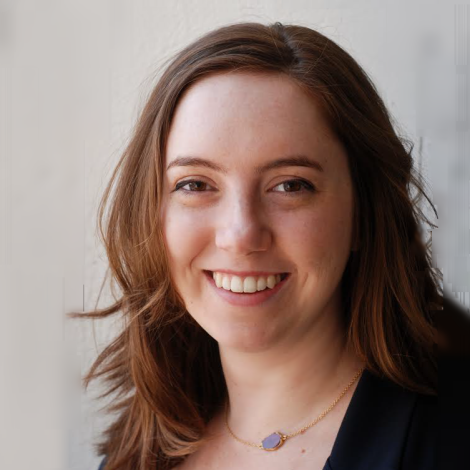Is “operations” the key to getting shit done?
Vanessa Hamer, Director of Operations at CartoDB, knows the value of designing processes and increasing efficiency. But she also knows not to take it too far; operations should be the servant, not the star, of the organization.
Below is my “How We Get Shit Done” (HWGSD) chat with Vanessa. Here are the highlights:
→ Operations should structure and serve an organization, like the flexible backbone of an animal.
→ Personal productivity practices are like religion: you might swear by yours, but you shouldn’t impose it on anyone else.
→ Leave the machine work to the machines so you can treat humans like humans.
→ Specialized teams and roles are a double edged sword; to avoid over-specialization, make sure you over-communicate.
To set the stage, what’s your background with operations?
I was a dual major in college: English and Biology. After college, I got a job in my university’s administration, working on sustainability initiatives. Then I ended up moving to New York for a job at a nonprofit called OpenPlans that worked on transportation and urban planning issues. I was a recruiter there and then ended up managing our operations for a number of years. We managed ourselves sort of like an incubator. There were specific projects, and there was very little bureaucracy or backbone in the organization. The projects were self-managing: they might need some budgeting help or some hiring help, but mostly, as operations, we just wanted to make ourselves invisible. And I think that’s a good mindset to have.
Mostly, as operations, we just wanted to make ourselves invisible.
A number of those projects were very successful. We spun some off into other nonprofits and we launched a couple as their own companies. With one of those launches, I ended up going with the new company and being the VP of Operations there. We raised some venture capital and built a bigger business, and it was pretty exciting. About a year and a half ago, I decided to leave that. I took six months off, traveled around the world, and visited some friends… I figured I might not ever have the opportunity again.
When I came back to reality, I ended up at CartoDB, which is a mapping software company. The idea is to democratize mapping. It used to be that kings were the ones with the maps because that’s where the power was, and we think everyone should have that access. I’m the operations person here.
How would you define “operations”? It seems to mean something different everywhere.
Well, there’s the activities and then there’s the philosophy.
The activities are the things that make it easy for other people (the people not in operations) to do their jobs. Like setting up an email server. And helping different groups work together. Sometimes that means trying to get a common process for certain things, whether that’s budgeting or hiring…
When I got here to CartoDB, we didn’t have a good process for bringing people onboard in our New York City office. We were doing a lot of hiring, then people would get here and, generally speaking, they were given a laptop… But we weren’t making sure that they had email and the twenty other accounts that they would need to do their jobs. We weren’t saying, “Here are some things that you should read,” and we weren’t introducing them around the office. So now we’ve set that up. But we also don’t want to make it so heavy duty that it gets in the way.
You want the minimum amount of process to get things done.
Then, as you get to be a bigger company, operations becomes a more… I don’t want to say “proactive,” but it has to intuit a little more process. You want the minimum amount of process to get things done at the stage where you are and the stage where you’re going to be. So eventually we’d like to have full-week training program for everyone who’s just joined the company. We think that’ll build relationships and add context. It’ll help them be faster and happier down the road.
But the philosophy for an operations department is that you’re this flexible backbone in the animal of the organization. The idea is to help make hard, slow things easier and faster.
When and how did you start getting interested in operations and productivity?
Honestly, there was a period where I had a manager who was MIA. She had all these management books on her desk, and I would take one home every day and read it on the subway. I don’t know why people read all these books; a lot of them are really bad. You figure out by the fifth one that you just need to read the jacket and the table of contents. But sometimes there are great tips.
My set of productivity practices are like a religion.
I’m also a Lifehacker devotee and I hate waste. For me, my set of productivity practices are like a religion. I have to work with other people’s religions — I can’t force them to use the task planning software I want to use — but it’s what keeps me sane.
I’m also really forgetful. I’m not a naturally organized person. So I’ve had to make systems to keep myself from showing that to the rest of the world. I can’t keep a lot of things in RAM. You know, this RAM. [pointing to head] So I have to write things down in a way that I can find later.
A lot of books have been written specifically about software developers being productive and achieving “flow.” Sometimes we think that software developers are these magical beasts when, in fact, it’s that all knowledge workers want to experience flow. And everyone has a hard time task-switching. Those books are saying things that are applicable to a knowledge worker workforce in general.
For some people, there’s a temptation to think that the issue of productivity in tech must have a tech solution. “There must be an app…”
Humans should do what humans are good at. And we should let machines do what machines are good at.
I think that humans should do what humans are good at, which is having judgment. And we should let machines do what machines are good at, which are rote tasks. I try to tell people, “Don’t be afraid of automating something so you’re more free. Don’t be afraid! What you should be afraid of is not automating it.” And you have to tell people — and show them — that you value them as a human.
I find that most of my challenges are, of course, human challenges. Like, building enough rapport with someone that you’re speaking the same language.
One of our challenges right now — and it’s an exciting challenge to have — is that we’ve almost tripled in size over the last year. It used to be that there were just a few people in the organization, so everyone did a little of everything. And then eventually we spread out: marketing is one person, and something else is one person. You start equating that person with that function. You think, “I just have to pull that person into this conversation.”
Now we’re at a point where we have whole teams of people handling a given function. You’re trying to give everyone a little piece, but also trying not to silo them. So you want everyone to see the context in the organization. Now we need team building and over-communication about the vision and the high level goals. (Actually, you can never over-communicate that stuff.) But that’s something that’s hard to do when there’s a lot of moving parts. You’re like, “When are we going to find time to tell people about this?” So what we’re going to do this year is taking everyone away for a week. For some people, this probably feels like a real cost: “They’re taking me off the job for a week.” But I think it’s going to be really good. Because otherwise we’re always going to be having side conversations. We’re going to be blocking each other.
There’s seems to be a “paradox of specialization” — we need specialization, but we don’t want to end up so specialized that no one sees the big picture.
It was so depressing to me. But she was specialized!
During my first week at my first job, I asked this woman who sat near me what she did. She said, “Well, I come in every day, and there’s pile of forms on my desk. By the end of the day, I’ve moved the forms over here…” It was so depressing to me. But she was specialized! She was a specialist at moving the forms. The badly designed forms were the reason that she had a job. And it worked for her because she had kids and she didn’t want to bring her work home.
People have different motivations. What if you’re an artist or a musician at night, and that’s your great passion… and you’re really great at filling out that form? Great!
So even though this blog series is about “team productivity in software development,” I’m wondering if “productivity” is really the right term. We’re talking about more than just productivity, and I fear that “productivity” sometimes translates into “busy-ness.”
Yeah, busy-ness is not a virtue.
I love my job, but I don’t desire to work 10- to 12-hour days. Or 8 hours, even. Really, I’d like to work about 4 hours a day, really effectively, and feel like there’s progress with every minute. Sort of a pipe dream, but it’s a good inspiration. Especially in a startup environment, where fast improvement is — like oxygen — necessary for life.
Whenever I ask someone how they’re doing and they say, “Busy,” I feel like, “Oh man, I wish you’d used some other adjective.” Our quality of life is high enough… What’s the point of being a rich country if everybody’s impoverished time- and life-wise?

